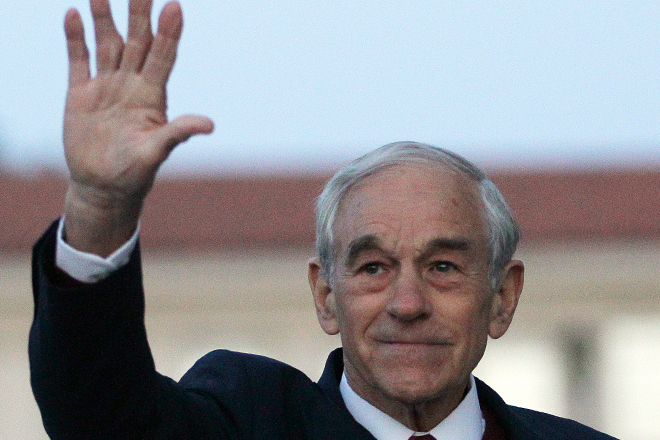Oh, by the way, Ron Paul won two states over the weekend.
Well, sort of. The libertarian congressman’s backers flooded Republican state conventions in Maine and Nevada, securing a near-monopoly on each state’s delegate slots for the GOP’s national convention this summer. Twenty-one of the 24 delegate positions up for grabs in Maine went to Paul supporters, as did 22 of the 25 at stake in Nevada. The leftovers in both states went to Mitt Romney backers.
The same story has been playing out elsewhere this spring, with the Paul crowd crashing under-the-radar conventions and district caucuses in Colorado, Iowa, Louisiana, Massachusetts and Alaska, among other places, raising the possibility that Paul will have far more supporters in Tampa, Fla., than his primary season performance would suggest.
Of course, not all of the Paul-ites who are winning delegate slots will actually get to vote for him at the national convention, since many are filling slots that are by rule designated for Romney. For instance, Romney’s overwhelming win in the straw poll that was conducted with Nevada’s February precinct caucuses guarantees that most of the state’s national delegates will be bound to support him on the first ballot. So Paul will actually have two types of delegates in Tampa: a relatively small group of delegates pledged to him, and a potentially much bigger group that wants badly to vote for him but can’t.
It’s that second group that is starting to make Romney’s camp, which sent its top lawyer to Maine for the convention this weekend, nervous. Romney-pledged Paul backers could try to change their states’ rules (or the rules at the national convention) to allow them to support Paul. But this probably wouldn’t work; the RNC is now threatening not to seat individual delegations that try this, and to pull it off in Tampa the Paul team would need an outright convention majority, something it’s not on course to have.
They could still stir up a lot of trouble, though. Even if they’re neutralized procedurally, Paul-aligned delegates could make their hostility to the GOP establishment clear during the convention’s prime-time hours. The potential for such an embarrassing, nationally televised spectacle is probably what the Romney team is most worried about at this point.
In a way, the Maine and Nevada developments actually point to how lucky Romney is. Think back to when both states held their “official” contests – the ones that the media and political world took seriously and used as gauges of the national GOP horse race. Nevada’s caucuses were on Feb. 4, the Saturday after Romney crushed Newt Gingrich in Florida’s primary. The post-Florida consensus was the GOP race was about over and that Romney would capitalize on a favorable February calendar to erase whatever doubt remained.
Nevada’s Feb. 4 results, which showed Romney doubling up his nearest opponent, seemed to validate this narrative. But then, out of nowhere, came Rick Santorum’s three-state Feb. 7 sweep – a landslide caucus win in Minnesota, a rout in Missouri’s beauty contest primary, and a narrow triumph in Colorado’s caucuses. The results sent Romney’s campaign into crisis and thrust Santorum – who had been ignored after failing to immediately follow up on his Iowa victory – back into spotlight. All of the questions about Romney’s acceptability to conservatives returned, and the next contest instantly became a must-win event for him.
That next contest was Maine, which held a straw poll in conjunction with its caucuses on Feb. 11, a Saturday. (Well, in conjunction with most of its caucuses, but that’s another story.) Turnout was pathetic – about 5,000 Republicans participated – and Romney nearly lost to Paul, finishing about 200 votes ahead of him. But Romney got the only thing he was really interested in – national headlines about how he’d won and put his campaign back on track. After Maine, there wasn’t another contest for three weeks, when Romney eked out a Michigan victory over Santorum – an outcome that many now regard as the one that cemented Romney as the likely nominee.
But what would have happened if Paul’s supporters had actually turned out for Nevada’s Feb. 4 caucuses? Paul’s campaign has expressed puzzlement over why more of them didn’t, noting that their list of supporters was far higher than their actual vote total. And what if just a few hundred more Paul backers had done the same in Maine the next week? Romney’s February crisis could have been a lot worse – maybe bad enough to cost him Michigan. And if he’d lost Michigan …
So, yes, losing Nevada and Maine in May is a problem for Romney’s campaign. But not nearly as big a problem as losing them in February would have been.

